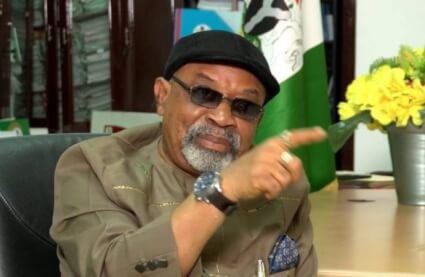Most of ASUU’s demands have been addressed by govt – Minister

The Minister of Labour and Employment, Dr. Chris Ngige, on Thursday said the Federal Government has dealt with most of the demands of the Academic Staff Union of Universities (ASUU).
ASUU, which is currently on a one-month strike, are seeking improved welfare, revitalisation of public universities and academic autonomy among other demands.

“A lot of them have been dealt with after our meeting in October last year,” Mr Ngige said during an appearance on Channels Television’s Politics Today.
“That’s why I said I was shocked they went on strike.
“The only place where they have a point to hold onto and do their strike is on the issue of renegotiation of 2009 – conditions of service, because their conditions of service was supposed to be reviewed.”
The Minister noted that the academics have produced an interim report on conditions of service which was rejected by the National Salaries, Incomes & Wages Commission (NSIWC).
“Because the things they have in there, in terms of allowances, were contrary to existing extant financial regulations,” he said.
Ngige said he was hopeful the academics will call of their strike soon so that students can return to the classroom.
One bone of contention for the academics is the non-payment of university revitalisation funds, which amounts to about N1.1 trillion.
But Ngige maintained that the Federal Government doesn’t have the money to pay such an amount, citing low oil prices during the Muhammadu Buhari administration.
The agreement was reportedly struck in 2009.
“In 2016/2017 government said it doesn’t have the money,” Mr Ngige said. “But we will find a way by which we can fund the universities. So, a committee was set up with ASUU as members.”
According to Mr Ngige, the committee “couldn’t come up with anything that could generate funds.
“The committee even recommended that stamp duty should be taken. There was a proposal to get money from phone charges. Government made it clear that we don’t have the 1.1 trillion that is remaining.”








